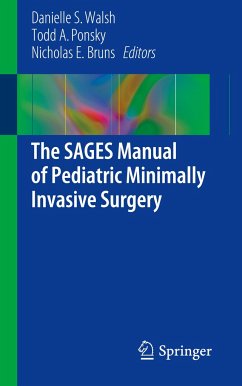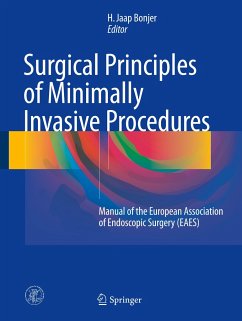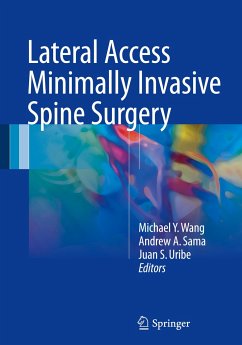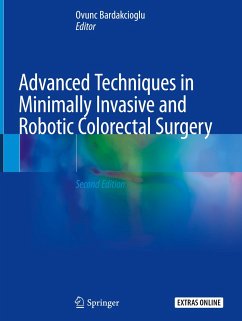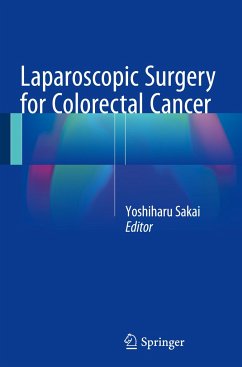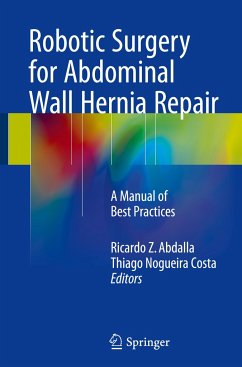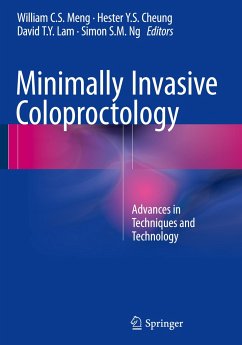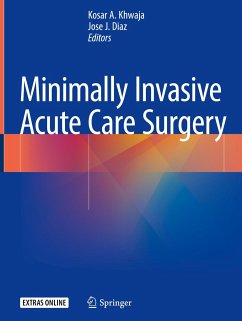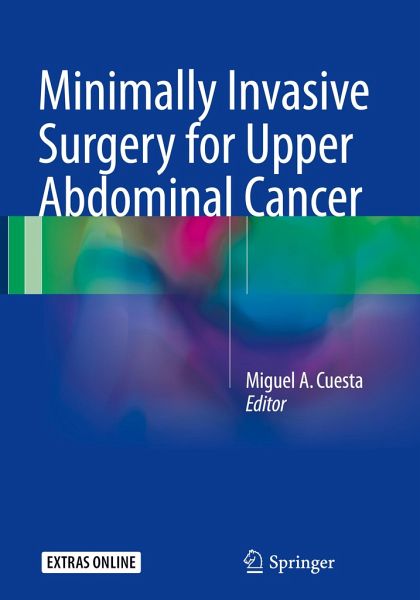
Minimally Invasive Surgery for Upper Abdominal Cancer

PAYBACK Punkte
68 °P sammeln!
This book aims to comprehensibly describe the minimally invasive technique including robot assisted procedures of upper abdominal cancer, including aspects such as surgical anatomy, neoadjuvant therapy and minimally invasive surgical technique, and robot assisted procedures (5 alinea). Upper abdominal oncological surgery is increasingly approached by Minimally Invasive Surgery (MIS). Due to the rising experience of young surgeons with MIS, the optimal imaging obtained during the procedure and the possibility of decreasing the postoperative complications has led to an increase of quality of lif...
This book aims to comprehensibly describe the minimally invasive technique including robot assisted procedures of upper abdominal cancer, including aspects such as surgical anatomy, neoadjuvant therapy and minimally invasive surgical technique, and robot assisted procedures (5 alinea). Upper abdominal oncological surgery is increasingly approached by Minimally Invasive Surgery (MIS). Due to the rising experience of young surgeons with MIS, the optimal imaging obtained during the procedure and the possibility of decreasing the postoperative complications has led to an increase of quality of life without compromising the completeness of resection.
The book bases its approach on the information gathered by MIS observation and the step-by-step descriptions, by using illustrations and videos of surgical procedures for oncological resections of esophageal and gastric cancer, as well as for duodenum, pancreas, spleen and liver cancers.
Furthermore, this book will serve asa teaching guide, providing a present-day introduction to the increasingly sophisticated performance of surgery required by general and specialized surgical practitioners. The reader will have access to a practical book with relevant information that guides adequate treatment.
The book bases its approach on the information gathered by MIS observation and the step-by-step descriptions, by using illustrations and videos of surgical procedures for oncological resections of esophageal and gastric cancer, as well as for duodenum, pancreas, spleen and liver cancers.
Furthermore, this book will serve asa teaching guide, providing a present-day introduction to the increasingly sophisticated performance of surgery required by general and specialized surgical practitioners. The reader will have access to a practical book with relevant information that guides adequate treatment.



